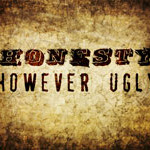We run our website the way we wished the whole internet worked: we provide high quality original content with no ads. We are funded solely by your direct support. Please consider supporting this project.

Do You Argue With God?
Image by michael_swan via Flickr
In sharp contrast to many today who seek the comfortable feeling of certainty as a way of feeling at peace with God, biblical heroes are better known for their willingness to be uncomfortable and to honestly wrestle with God. Like Jacob who wrestled with God through the night (Gen 32), the heroes of faith listed in Hebrews 11 questioned, challenged, argued, and even objected to God’s actions. The father of faith, Abraham questioned God’s justice when he announced his plans to destroy Sodom and Gomorrah (Gen 18:20-33). We see the same several times in the life of Moses. For example, he once boldly objected when God privately told him he was so angry with the Israelites that he planned on destroying them to start over with Moses alone. Moses’s bold intercession succeeded in changing God’s mind and he thereby spared the nation (Ex 32:10-14). In fact we find dozens of examples in the OT of people responding to God’s announced plans by interceding and changing his plans.
Biblical heroes of faith frequently objected to God’s actions—or at least what they thought were his actions. One of the greatest prophets in the history of Israel, for example, was Jeremiah. Yet throughout the book of Jeremiah, as well as its sequel, Lamentations, we find Jeremiah complaining of God’s apparently unjust treatment of him and God’s people as a whole while the wicked have it easy (e.g., Jer. 12:1; 14:8-9; 15:18). His bewilderment and honest objections become especially acute and are mixed with anger and sorrow in Lamentations, written in the wake of Babylon’s seizure of Judah. Read this brief work, and you will find Jeremiah sorrowfully crying out that God has acted like an enemy and a vicious predator (e.g., 2:4-5; 3:1-21) and ascribing to God absolutely barbaric behavior such as ruthlessly slaying young people (Lam 2:21) and causing mothers to eat their own babies (2:20;4:10-11)!
The prophet Habakkuk also is similar. He acknowledges to God that “your eyes are too pure to look on evil” and that “you cannot tolerate wrong-doing” (1:13). But precisely because he believes this, he raises this complaint:
Why then do you tolerate the treacherous?
Why are you silent while the wicked
Swallow up those more righteous than themselves? (1:13)
Sprinkled throughout the book are expressions of anger and confusion about God’s apparent inconsistency, especially as he allows pagans to conquer and abuse his own people.
As is apparent in so many OT heroes, the faith of Habakkuk was obviously nothing like we of think of faith today, that is certainty-seeking and doubt-shunning. They didn’t avoid cognitive dissonance by slapping the “mystery” label on things that seemed like contradictions. Habakkuk and others went to the mat with God. And far from being offended by this raw honestly, God is the One who blessed them with it! For instance, Jacob was blessed by God when given a new name, Israel, after wrestling with God all night, an act that reveals his core identity and character. This apparently is precisely the kind of honest relationship, and the kind of honest faith, God is looking for!
—Adapted from Benefit of the Doubt, pages 82-83
Category: General
Tags: Benefit of the Doubt, Doubt, Faith, Wrestling with God
Topics: Apologetics
Related Reading

Another Sneak Peek from Benefit of the Doubt
As we approach our ReKnew conference next month, we’ll be posting snippets of Greg’s book, Benefit of the Doubt. We hope you’ll be joining us. We extended the deadline for early bird registration. Get on that before Friday at midnight! What Is Your Actual God? In light of all this, what should be said about…

When Jesus Questioned the Father
Though the sinless Son of God had perfect faith, we find him asking God the Father to alter the plan to redeem the world through his sacrifice—if it is “possible” (Matt. 26:42). As the nightmare of experiencing the sin and God-forsakenness of the world was encroaching upon him, Jesus was obviously, and understandably struggling. So,…

Conference: Faith, Doubt & the Idol of Certainty
We’re really excited about Greg’s book, Benefit of the Doubt, coming out in September. In fact, we’re SO excited that we want to invite you all to a conference we’re holding September 27-28, 2013 at Woodland Hills Church. You can get all the information you could ever hope for by clicking here. We’ll be exploring the relationship between faith…

Beyond Theoretical Salvation
Profession of Christ’s lordship in our lives isn’t a magical formula. It’s more than a theory about how we can get saved if we confess the right doctrines. The confession has meaning only when it’s understood to be a genuine pledge to surrender one’s life to Christ. (See yesterday’s post.) But I want us to…

Honesty, However Ugly
For last week’s sermon at Woodland Hills Church, Greg spoke about the importance of being honest with God about our struggles and doubts. This is part of what it means to be in a genuine relationship with God, and the Bible is full of characters who demonstrate this for us. Is it difficult for you…

Faith and Mental Illness
Greg talks about mental illness. http://traffic.libsyn.com/askgregboyd/Episode_0055.mp3
